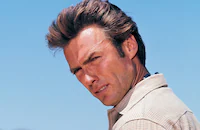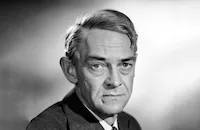Honkytonk Man
Brief Synopsis
Cast & Crew
Clint Eastwood
Clint Eastwood
Kyle Eastwood
Verna Bloom
John Mcintire
Alexa Kenin
Film Details
Technical Specs
Synopsis
The Wagoneer family are surviving the Depression by picking cotton on their family farm in Oklahoma. During a terrible dust storm, Mrs. Wagoneer's rogue brother Red arrives in a convertible. Red is a country-western musician who has just been given the chance of a lifetime, an audition for the Grand Ole Opry. But there are some obstacles to his getting all the way to Nashville: He has no money, is a terrible driver, and has tuberculosis. The family's fourteen-year-old son Whit sees an opportunity of his own and offers to go with Uncle Red as his driver. His mother consents and uncle and nephew hit the road.
Director

Clint Eastwood
Cast

Clint Eastwood
Kyle Eastwood
Verna Bloom

John Mcintire
Alexa Kenin
Barry Corbin
Linda Hopkins
Jerry Hardin

Matt Clark
Tim Thomerson
Macon Mccalman
Joe Regalbuto
Gary Grubbs
Rebecca Clemons
Johnny Gimble
Bette Ford
Jim Boelsen
Tracey Walter
Susan Peretz
John Russell
Charles Cyphers
Marty Robbins
Ray Price
Shelly West
David Frizzell
Porter Wagoner
Bob Ferrera
Tracy Shults
R J Ganzert
Hugh Warden
Kelsie Blades
Jim Ahart
Steve Autry
Peter Griggs
Julie Hoopman
Rozelle Gayle
Robert Barron
Lloyd Nelson
George Orrison
Glenn T Wright
Roy Jenson
Sherry Allurd
Gordon Terry
Tommy Alsup
Merle Travis
Robert D Carver
Thomas Powels
Crew
Edward Aiona
Susan Arnold
Bub Asman
Ed Ayer
Kirk E Bales
Marco Barla
Tony Brown
David E Campbell
Edward C Carfagno
Clancy Carlile
Clancy Carlile
Joseph Citarella
Joel Cox
David Alan Dittmar
Steve Dorff
Marion Dougherty
Clint Eastwood
Wayne Edgar
Betty Endo
Snuff Garrett
Jack N Green
Donald Harris
Bob Henderson
Judie G. Hoyt
Phyllis Huffman
Don Johnson
Michael Kelly
Robert Lawless
Fritz Manes
Marc Marguls
Michael Maurer
Jimmy Medearis
Michael Middleton
Gary J Moreno
Richard Morgan
Alan Robert Murray
Leo Napolitano
Lloyd Nelson
Steve Perry
Steven H Perry
Jim Porter
Frank Reinhard
John T Reitz
Charlie Saldana
Tom Seidman
Lida Sony
Bruce Spellman
Tom Stern
Jules Strasser
Bruce Surtees
Aida Swenson
Ferris Webster
Marlene Williams
Glenn T Wright
Film Details
Technical Specs
Articles
Honkytonk Man
Honkytonk Man (1982) was Eastwood's ninth picture as director and the second he also produced - an important item to note when you consider that he has had complete creative control over most of his films ever since. While not one of his greatest films, Honkytonk Man is nonetheless underrated. It features the perfect compositions and clean editing we've come to expect from Eastwood's movies, fine acting all around, gentle but satisfying humor, and some emotional dramatic moments. What it lacks is a truly strong story. Still, it's very watchable if you get in the right mood for a leisurely road movie and character study.
Set in the Depression, Clint plays Red Stovall, a country singer who is determined to audition at the Grand Ole Opry before he dies of tuberculosis. Accompanied by his adolescent nephew Whit (played by Clint's son Kyle Eastwood, who does just fine) and Whit's Grandpa (the great veteran character actor John McIntire), Red departs Oklahoma for Nashville. Along the way, Whit does most of the driving, tries his best to "look out for" Uncle Red, and comes of age as Red passes on some of his unique wisdom and ways of doing things - much of it funny (a chicken theft; a priceless visit to a whorehouse), some of it more sober (Whit must learn to deal with death). The story is certainly episodic, but the episodes are often so enjoyable that it doesn't matter too much. Red eventually makes it to Nashville, and his singing sequences there are touching and well-played, despite the fact that Eastwood's singing talent doesn't exactly measure up to his directing or acting abilities.
Still, Eastwood's well-known love of music, especially jazz and blues, is surely a reason he was drawn to this script. He even included cameos by several well-known musical artists. Famed country singer Marty Robbins was the most prominent - he appears in the recording sequence, playing and singing with Eastwood on the song "Honkytonk Man." Robbins died before the film was released, but his recording of "Honkytonk Man" reached the Billboard Country Top 10 posthumously.
Recently issued as part of Warner Home Video's Clint Eastwood Collection, this disc has few frills - just a trailer and a printed list of highlights of Eastwood's career - but the movie itself is a perfectly fine transfer.
For more information about Honkytonk Man, visit Warner Video. To order Honkytonk Man, go to TCM Shopping.
by Jeremy Arnold

Honkytonk Man
Quotes
Trivia
Miscellaneous Notes
Released in United States December 1982
Released in United States Winter December 15, 1982
Released in USA on video.
Released in United States December 1982
Released in United States Winter December 15, 1982













